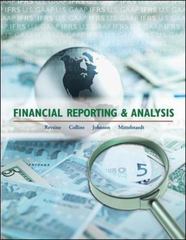Thank you very much for the help
Andrew is a Nobel laureate who teaches physics at a university where he is paid a yearly salary of $80,000. He plans to take the next year off to write a book, so he won't earn any money next year. He is currently trying to figure out how much of this year's salary he should save for next year. Disregard any tax considerations, and disregard what happens after next year. In other words, assume that next year, Andrew will consume whatever he saves, plus any interest, and that he's not thinking beyond next year. The following graph shows Andrew's preferences for consumption this year and next year. Suppose initially Andrew cannot earn interest on the money he saves. Use the green line (triangle symbol) to plot Andrew's budget constraint (BC1 ) on the following graph. Then use the black point (plus symbol) to show his optimum consumption bundle. Note: Dashed drop lines will automatically extend to both axes. 120 A 110 100 BC, (0% Interest) 90 80 Initial Optimum (0% Interest) 60 O CONSUMPTION NEXT YEAR (Thousands of dollars) BC, (50% Interest) N 30 20 New Optimum (50% Interest) 10 0 0 10 20 30 40 50 60 70 80 90 100 110 120 CONSUMPTION THIS YEAR (Thousands of dollars)Now suppose Andrew can earn 50% real interest on any money he saves. Use the blue line (circle symbol) to plot his new budget constraint (3C2) on the previous graph. Then use the grey point (star symbol) to plot his optimum consumption bundle at this interest rate. (Hint: To plot BCz, think about how much money Andrew would have next year if he saved his entire income this year.) Using the previous graph, complete the following table by indicating how much Andrew should save of his current income when he cannot earn any interest on his savings and when he can earn 50% interest on his savings. Interest Rate Amount Andrew Saves (Percent) (Dollars) 0 so |:I which of the following statements is a good description of the results of this exercise, as well as its implications for broader consumer behavior? O All consumers, including Andrew, save less money when interest rates are high, because they don't need to save as much money to have the same future income. 0 In this case, Andrew saves more money when interest rates are high. However, consumers with different preferences might save less money when interest rates are high. C All consumers, including Andrew, save more money when interest rates are high, because they get a higher return on that investment. 0 In this case, Andrew saves less money when interest rates are high. However, consumers with different preferences might save more money when interest rates are high








